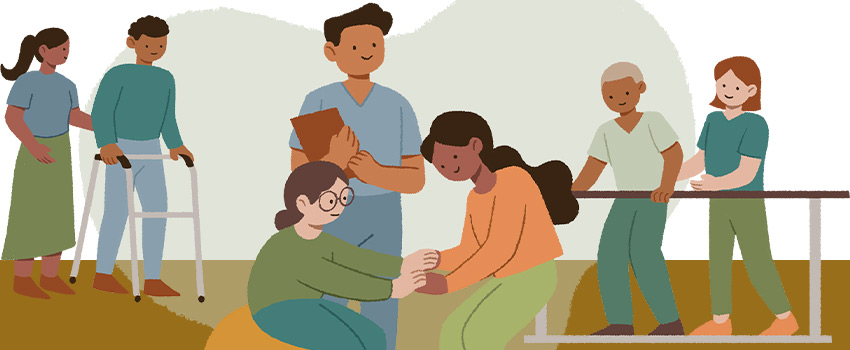Building psychosocial and cultural resources for recovery and adaption after serious injury
Everyone has personal and social resources which can support recovery and adaptation after serious injury. These resources can include things like personal and cultural values, social connections, a sense of purpose, and hope.
But these resources can also be challenged by serious injury, and they are sometimes overlooked in healthcare. Our ways of working in healthcare can help, or hinder, the development of personal and social resources. We are interested in how these resources are built, enhanced and maintained after serious injury. We hope to use what we learn to support health services and professionals to work in ways that bolster these resources, and ultimately, to improve outcomes that matter to people after serious injury.

The impacts of serious injury are significant. People recovering from serious injury in Aotearoa describe complex recovery journeys which are dynamic and take time. There is growing evidence that positive factors such as self-efficacy, perceived control, hope, post-traumatic growth, and cultural identity play a crucial role in recovery after serious injury. In other words, it is not just the absence of negative factors, but the presence of positive factors that contribute to better long-term outcomes for people after serious injury.
Our processes and ways of working in healthcare have the potential to support (or reduce) the development of personal, social and cultural resources. Therefore, it is important to better understand how these resources are maintained and developed in trauma care and rehabilitation to harness their potential for supporting recovery and adaptation.
We are interested in taking a positive psychology perspective of recovery in trauma care to study how these resources are built and maintained over time. We will use what we learn to create practical tools to support trauma care and rehabilitation services.
Study design
This study is a longitudinal mixed methods realist evaluation. It has three phases:
- Survey: People and whānau impacted by serious injury admitted to hospitals in Auckland and Christchurch will be invited to complete a survey at three time points over 18 months.
- In-depth follow up: A sub-group of people will be invited to take part in in-depth follow up. This will involve observing a selection of healthcare interactions, followed by short debrief interviews. We will also invite people and whānau to participate in an interview at their home (or a location of their choice) at 12 and 18 months after their injury.
- Co-design hui: Those involved in in-depth follow up will be invited to take part in co-design hui. Together we will design tools to help health services and professionals build, enhance and maintain personal, social and cultural resources after serious injury.
Resources related to this project
- Promotion poster for Christchurch: download pdf version
- Introductory video: https://youtu.be/nlfAKnSjkXU
Project details
Funder:
Health Research Council of New Zealand
Principal investigator:
Professor Nicola Kayes
Research team:
Dr Rachelle Martin, Greta Smith, Rachel Haselden, Claire Ibell-Roberts, Dr Sandy Rutherford,
Co-investigators:
Dr Dawn Adair, Professor Ian Civil, Professor Belinda Gabbe, Associate Professor Felicity Bright, Christine Cummins, Professor Alice Theadom, Dr Hinemoa Elder
Contact person:
Principal investigator - Nicola.kayes@aut.ac.nz
Auckland study coordinator – Greta.smith@aut.ac.nz
Christchurch study coordinator – Rachel.haselden@aut.ac.nz
Timeline:
September 2024 – October 2027
Current status:
Study start-up